Tunisian border traders, smugglers struggle to survive amid COVID
Strict coronavirus restrictions have hit vital border trade in southeast Tunisia hard, triggering an exodus to Europe.
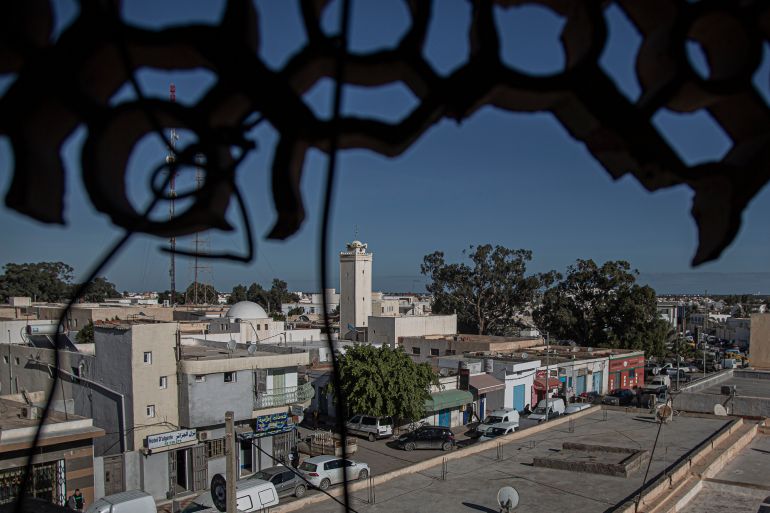
Southeast Tunisia – In Ben Guerdane, a town in Tunisia’s far southeast straddling marshes, the sea, and the Libyan border, rows of stalls selling smuggled fuel sit shuttered. Only one stall is open.
Out front, Tarek sits in a burnous, a woollen hooded Tunisian cloak. Behind him, plastic jerrycans full of diesel are stocked in the shade of his stall.
Keep reading
list of 4 items‘The whole system must go’: Tunisians rally for fifth night
Tunisia’s burgeoning youth-led protests in 700 words
Tunisians rally to demand release of detained protesters
“We gather the fuel that traders bring across from Libya, store it, and sell it here,” Tarek said.
“But for the eight months that the borders were closed [due to coronavirus measures], we didn’t work a day. We sat at home.”
Abdelbassat, another fuel seller who works with Tarek, said: “I’m thinking of leaving Tunisia on a boat. I know hundreds like me who’ve already left. There’s no work here.”
Last week, Tunisia’s economic grievances were brought into sharper focus as the country marked 10 years since the fall of former leader Zine El Abidine Ben Ali.
Protests have broken out in recent days in major cities demanding jobs, dignity and the release of detainees, with COVID-19 restrictions compounding a wider economic malaise.
In the long-neglected, impoverished southeast of Tunisia, the economy largely depends on a mix of legal cross-border trade and the smuggling of everything from fuel to electronics to food and even weapons.
But strict coronavirus restrictions have hit border trade hard and further inflamed a social and economic crisis.
While the southeast has not experienced significant protests recently, many people in the region are now leaving for Europe on perilous Mediterranean journeys.
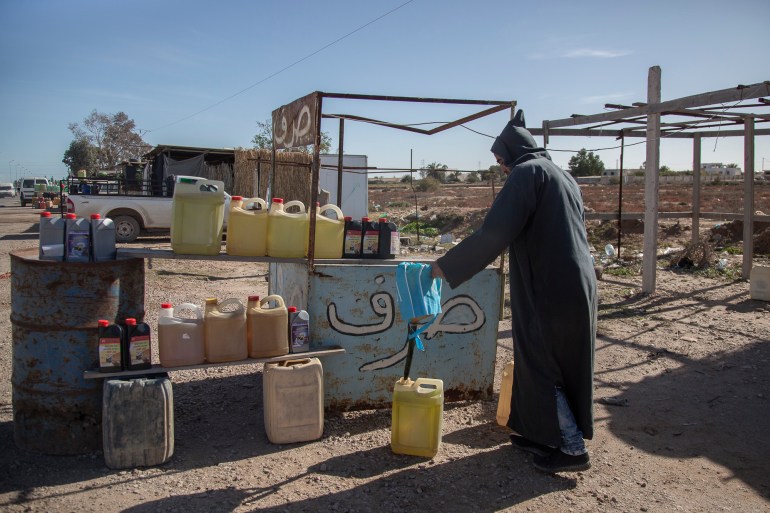
Closed border
Rahdouane Azlouk, a border trader in Ben Guerdane, told Al Jazeera the borders with Libya were completely closed from March 16 until November 14.
“The only sector in Tunisia not touched by the border closures might be agriculture,” said Azlouk.
But even after borders reopened, anti-COVID measures have made business slow and limited.
“Now we need a COVID-19 test no more than three days before we go to Libya with a negative result. If not, we need to go into quarantine.”
Azlouk said traders have now set up special routes to limit contact with others, and minimise the risk of spreading the coronavirus.
He said that the border traders must be allowed to work, or else “much of Tunisia’s southeast will continue to crumble”.
“Traders change money, they bring cheap fuel, they [supply] the phone shops with SIM cards, they bring food from Libya, they help cafés, they help hospitals and pharmacies with medicines. This is all because the products in Libya are cheaper,” he said.
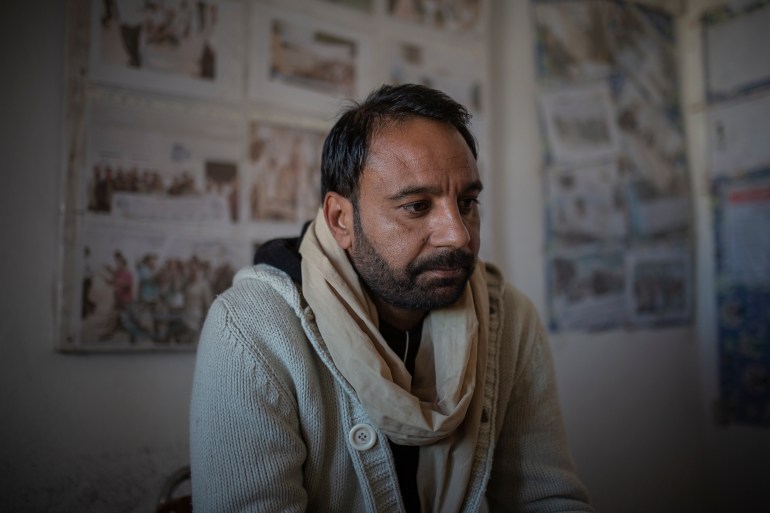
According to Adel Abdelkbir, a border trader in Ben Guerdane who says he legally brings fuel from Libya to Tunisia, protests and blocking by traders and their families of the roads in September and October eventually forced the government to reopen the borders on November 14.
During the border lockdown, Abdelkbir borrowed from friends and used credit to get by.
While the opening of the borders may have taken some of the pressure off, anti-COVID measures are cutting a big chunk out of the decent living he used to make – now he barely gets by.
“I used to make three trips across the border per day,” he said. “Now it’s only one.”
He said a COVID test involves a one-hour drive to a test centre and costs 209 dinars ($77) each time.
“Now I’m left with an average of 30 dinars ($11) per day from business,” he said – less than a third of his previous earnings.
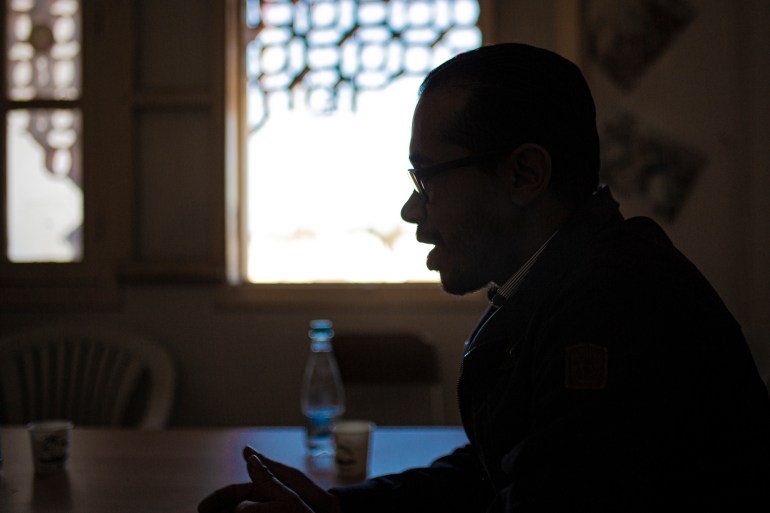
Infections rising
As of Thursday, the North African country of 11.5 million people had reported 188,373 infections and 5,921 deaths from COVID-19.
Infections dipped after Tunisia reported its highest tally of 5, 752 infections on October 17, but have climbed again in January – recording 3,890 infections on Thursday.
The death rate across the country is averaging more than 40 a day and 77 percent of intensive care unit beds across the country are now occupied, according to official figures.
The regional health office in Medenine governorate, where Ben Guerdane is located, reported on Thursday that intensive care units in its public and private hospitals have reached 100 percent capacity. Infection cases in the governorate surpassed 5,000, with 196 deaths as of last week.
Meanwhile, the World Bank projects at least a 7.3 percent rise in poverty in Tunisia during the pandemic, and said the southeast would be among the hardest hit.
According to official Tunisian statistics, Medenine governorate has a poverty rate of 21.7 percent.
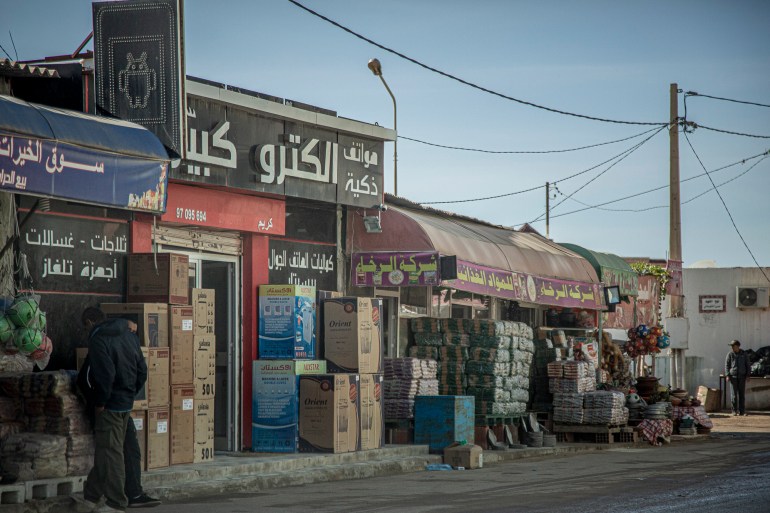
Tunisia’s second official border crossing with Libya, Dhehiba, in Tataouine governorate, more than 150km (93 miles) to the south, was also closed due to the pandemic from March until November.
Dhaow Dehibi, a media activist and teacher in the town, noted that since Dhehiba was officially reclassified as a commercial crossing in 2011, residents have come to rely on it to make a living.
“There was a lot of movement on the border crossing before,” Dehibi said. “Those who worked at the crossing, and the traders, lived well. They ate the best food. They went on vacations.”
“All activity stopped [when the borders closed],” Dehibi said.” Workers at the border station were unemployed. Transporters couldn’t move products. Cafes and restaurants closed.”
Even though the borders have reopened, anti-COVID measures have made it nearly impossible to survive through border trade, Dehibi said.
With the nearest recognised COVID rapid test labs three hours away in Zarzis and Djerba, Dehibi and other activists are calling for the central government to at least make testing easier.
“We called the Ministry of Health to ask for a rapid COVID testing centre in Dhehiba. They said, ‘Why not?’ But so far there’s been no action,” he said.
Ouni Ajil, a journalist in Ben Guerdane, said that despite the intense economic effects of the border closures, “there has been no economic assistance for traders from the government”.
The government did not respond to requests for comment.
The nationwide lockdown restrictions and a nightly curfew since October to contain the spread of COVID-19 has continued to limit trade.
Riadh Béchir, President of the Association for Development and Strategic Studies of Medenine, a non-governmental research organisation, said border trade – both legal and illicit – is integral to the economic engine of Tunisia’s southeast.
“There are thousands of merchants who trade goods from Libya, like food and construction materials through the official Ras Jadir border crossing, or smuggle some items such as medicines and some subsidised products through secret pathways in the desert,” he told Al Jazeera in an email.
Measures taken to fight coronavirus’s spread have inadvertently constrained opportunities to make a living to the point that border traders themselves are now fleeing on boats to Europe.
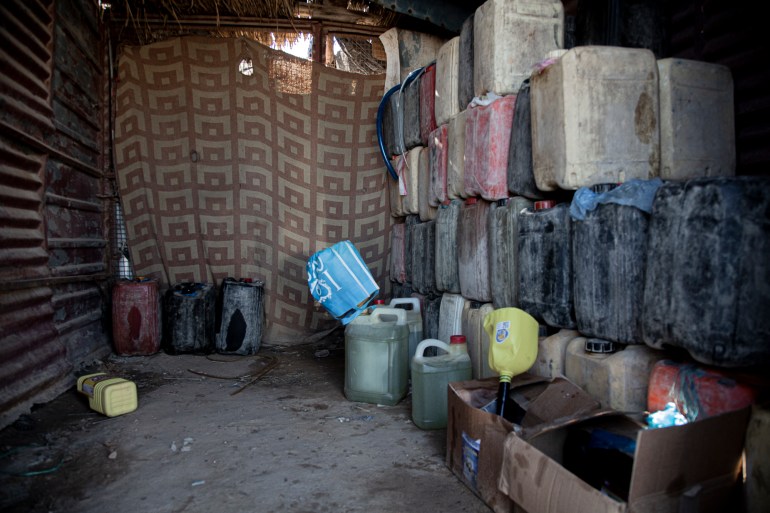
Fleeing to Europe
“In Tunisia, since the beginning of [2020], more than 12,500 Tunisians have travelled [irregularly] by boat to Lampedusa, Italy,” Béchir said.
“Migration has negative aspects, even leaving a lack of local workforce in fields such as construction, and an increase in single women who [can’t find partners],” Béchir added.
The outflow of border merchants seeking greater opportunity across the sea is unprecedented in southeast Tunisia, said Chaffar Abdessamad, a senior shelter coordinator for migrants with the International Organization for Migration, in Zarzis – a major departure point for illegal migrants.
“For us, it’s strange to see that traders from Ben Guerdane are trying to cross the Mediterranean Sea. We know they [used to] earn a lot of money from smuggling,” Abdessamad said.
“But since they are crossing the sea, like many here in Zarzis, this could show that [they have] some big economic problems.”